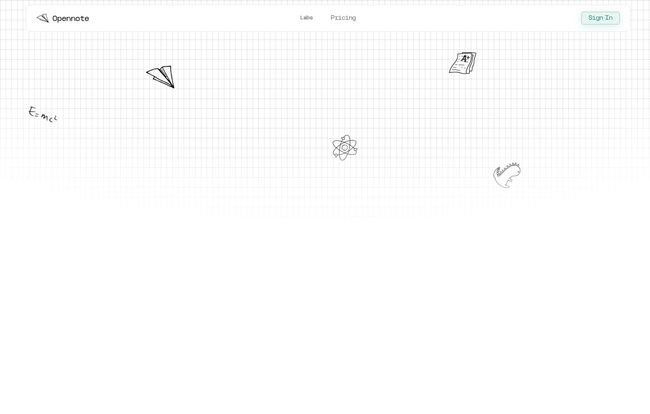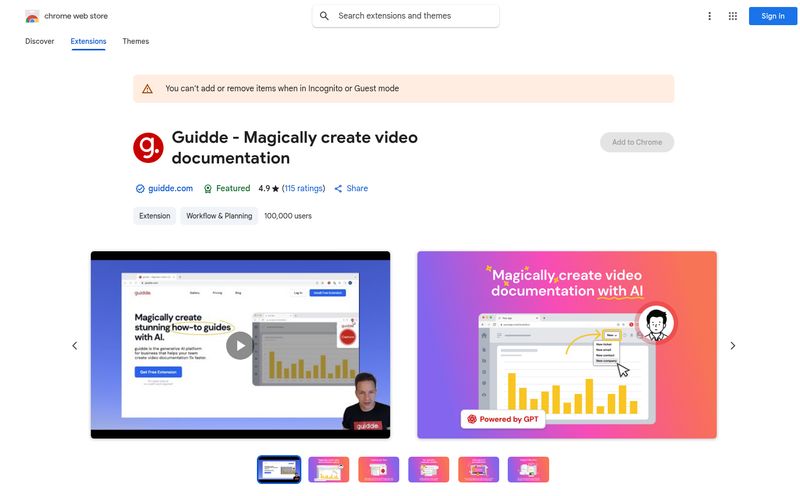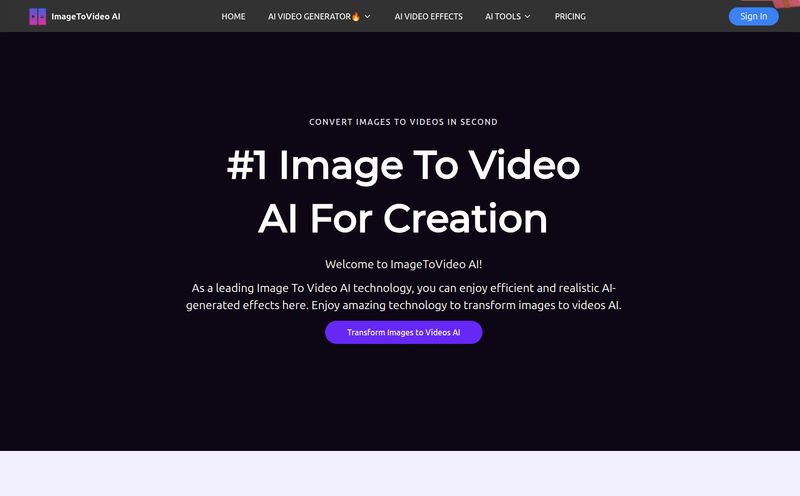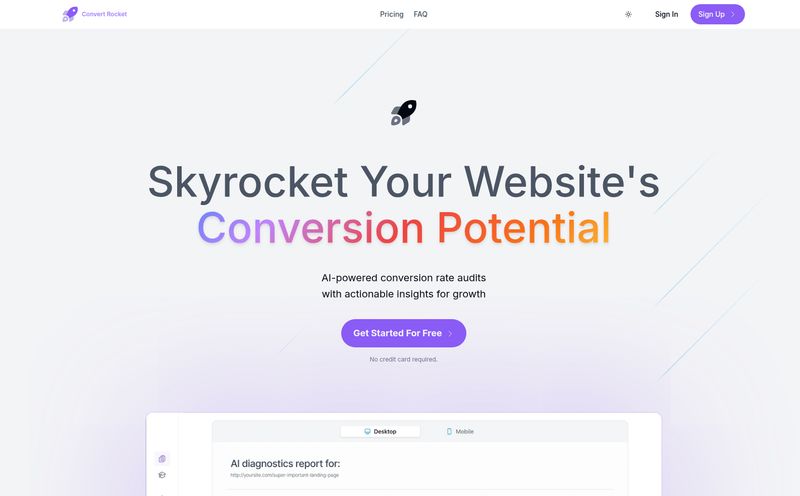The world is swimming in AI tools. Every single day, another platform pops up claiming it will “revolutionize” your workflow, your creativity, your entire life. Honestly, most of them feel like a thin veneer over the same old tech. I've become a bit jaded, I admit. So when I heard about Opennote, calling itself the “world’s first deep research tool for learning,” my internal cynic just rolled its eyes. Another one? But... I'm a sucker for tools built for a specific purpose, especially in the SEO and research world. So I decided to give it a whirl.
And I’m glad I did. This one feels different. It’s not trying to be a jack-of-all-trades. It’s not just another note-taking app with a chatbot stapled to the side. It's designed from the ground up to help you actually understand complex information, not just store it.
So What Exactly is Opennote?
Imagine your trusty notebook, your highlighter, your mess of sticky notes, and a super-smart research assistant all had a baby. That baby would be Opennote. It's an open notes platform powered by its own custom AI models, playfully named Feynman & Turing. (A nod that the inner nerd in me really appreciates). They claim these models are faster than Llama and OpenAI for their specific tasks, which is a bold claim, but it points to their focus: specialization.
This isn't just about asking an AI to summarize a chapter for you. It’s about creating a space where you can upload your files—lecture slides, dense academic papers, web articles—and interact with them in a much deeper way. It’s less like a digital filing cabinet and more like a Socratic research partner who lives in your laptop.

Visit Opennote
The Features That Genuinely Stand Out
A feature list is just a list. What matters is how it works in practice. Here's what caught my eye.
DeepTutor and Those Custom AI Brains
This is the core of the experience. Instead of a generic chat window, DeepTutor is context-aware. You can highlight a confusing paragraph in a PDF you’ve uploaded and ask it to explain it to you like you're five. Or ask it to generate quiz questions based on your lecture notes. Because it’s running on their specialized models, the interaction feels incredibly focused on the learning part of the process. I threw a particularly dense article about Google's search ranking patents at it, and the explanations it gave were surprisingly coherent and helpful. Way better than just copy-pasting the text into a generic LLM.
Interactive Canvases: Your Digital Brain Dump
We all know that feeling. Your desk is covered in papers, you have 15 tabs open, and your brain is trying to connect the dots. The interactive canvases in Opennote are a digital solution to this beautiful chaos. You can drag and drop notes, quotes, images, and ideas onto a single surface and draw connections between them. It’s a bit like Miro or FigJam but built specifically for research and study. For visual thinkers like me, this is a massive win. It helps you see the bigger picture, not just a linear wall of text.
Video Generation is a Curious Addition
Okay, this one was unexpected. Opennote can generate short videos from your notes. At first, I was like, “Why?” But then I thought about it. Turning a complex topic into a short, shareable video is a powerful way to test your own understanding—a core tenet of the Feynman Technique. It’s also brilliant for creating quick study summaries to watch on the go. It's a bit of a niche feature, but a very clever one that reinforces the platform's educational ethos.
Let's Talk Money: The Opennote Pricing Plans
Ah, the all-important question. Can a student or a lifelong learner on a budget actually afford this? The pricing structure is refreshingly straightforward. I've put it into a simple table so you can see for yourself.
| Plan | Price | Who It's For | Key Features |
|---|---|---|---|
| Free | $0 /month | The Curious / Light Users | Limited daily chats, 3 DeepTutor uses/day, 5 file uploads/day. It's basically a test drive. |
| Premium | $15 /month | Serious Students & Researchers | Unlimited everything. Plus, a 20% student discount with a university email, which is a fantastic touch. |
| Enterprise | Custom | Institutions & Companies | Everything in Premium plus proctoring, classroom sharing, priority support, etc. |
My take? The free plan is exactly what it should be: a demo. It gives you a real taste of the platform's power, but the limitations will kick in quickly if you're using it for an actual project. The Premium plan, especially with the student discount (bringing it down to around $12), feels like a very fair price for what you get. If this tool saves you even a few hours of frustrating research or helps you ace an exam, it's paid for itself.
Where Opennote Shines and Where It Stumbles
No tool is perfect, right? After playing around with it for a while, here's my honest breakdown.
The Good Stuff
The biggest pro is its focus. It’s unabashedly a tool for learning. The tight integration of the AI with your content is its superpower. The ability to create a personalized learning environment that adapts to your materials is something you don't get from more general-purpose tools. And again, that student discount shows they understand their target audience. They're not just saying they're for students, they’re putting their money where their mouth is.
The Not-So-Good Stuff
The limitations on the free plan are a bit of a bummer, even if I understand why they exist. Three DeepTutor uses per day vanish in a single study session. Also, if you're just looking for a simple app to jot down grocery lists or meeting notes, this is probably overkill. Its strength is its depth, which can be a drawback for someone who just wants a minimalist, no-fuss notes app. This ain't trying to replace Apple Notes, and that is okay.
How Does It Compare to the Titans Like Notion or ChatGPT?
This is a key question. I practically live in Notion, but I see Opennote as a different beast entirely. Notion is a fantastic life OS and database tool; I use it to organize projects and content calendars. Opennote is where I'd go to actually learn the material for those projects. It's a specialist vs a generalist.
And compared to just using ChatGPT? The difference is context. With ChatGPT, you're constantly feeding it information. With Opennote, the information is already there in your study space. The AI works with you, on your documents, which leads to a more integrated and, frankly, more useful interaction for studying. It remembers what you've uploaded, making the conversation feel much more continuous.
Frequently Asked Questions About Opennote
I had a few questions myself, so here are some quick answers for you.
- Is Opennote actually free to use?
- Yes, there is a free plan! It’s great for trying the platform out, but it has daily limits on some of the core AI features. For heavy-duty studying, you'll likely want to upgrade.
- How is this different from just using ChatGPT?
- The main difference is integration. Opennote's AI is built to work directly with your uploaded documents, notes, and canvases. It's a contained, context-aware learning environment, not a general-purpose chatbot.
- Are my notes and data private?
- Given they offer Enterprise plans with features like 'Praxis Proctoring' for institutions, it's safe to assume they have robust security and privacy measures in place. Academic integrity is clearly on their radar.
- Can I use Opennote for work or is it just for students?
- While it's branded for students, anyone involved in deep research could benefit. I can see lawyers, market researchers, or content creators like myself getting a ton of value from its content analysis tools.
- What's the student discount and how do I get it?
- They offer 20% off the Premium plan. You just need to sign up with a valid university email address to qualify.
So, Is Opennote Worth It? My Final Verdict
After my initial skepticism, I’ve come around. Opennote is the real deal. It’s a thoughtfully designed tool that understands a critical truth: the goal of research isn’t just to collect information, but to synthesize and understand it. It's one of the first AI tools I've seen that feels less like a shortcut and more like a genuine learning accelerator.
If you're a student drowning in reading lists, a researcher trying to connect disparate ideas, or just a curious mind who loves to learn, I'd say give the free plan a shot. You might just find the study partner you didn't know you were looking for. It’s a small, focused player in a world of AI giants, and sometimes, those are the ones that bring the most interesting ideas to the table.
Reference and Sources
- Opennote Official Website: https://opennote.com
- EDUCAUSE Review, 'The Transformative Potential of AI in Higher Education': An interesting read on the broader context of specialized AI tools in academia.



